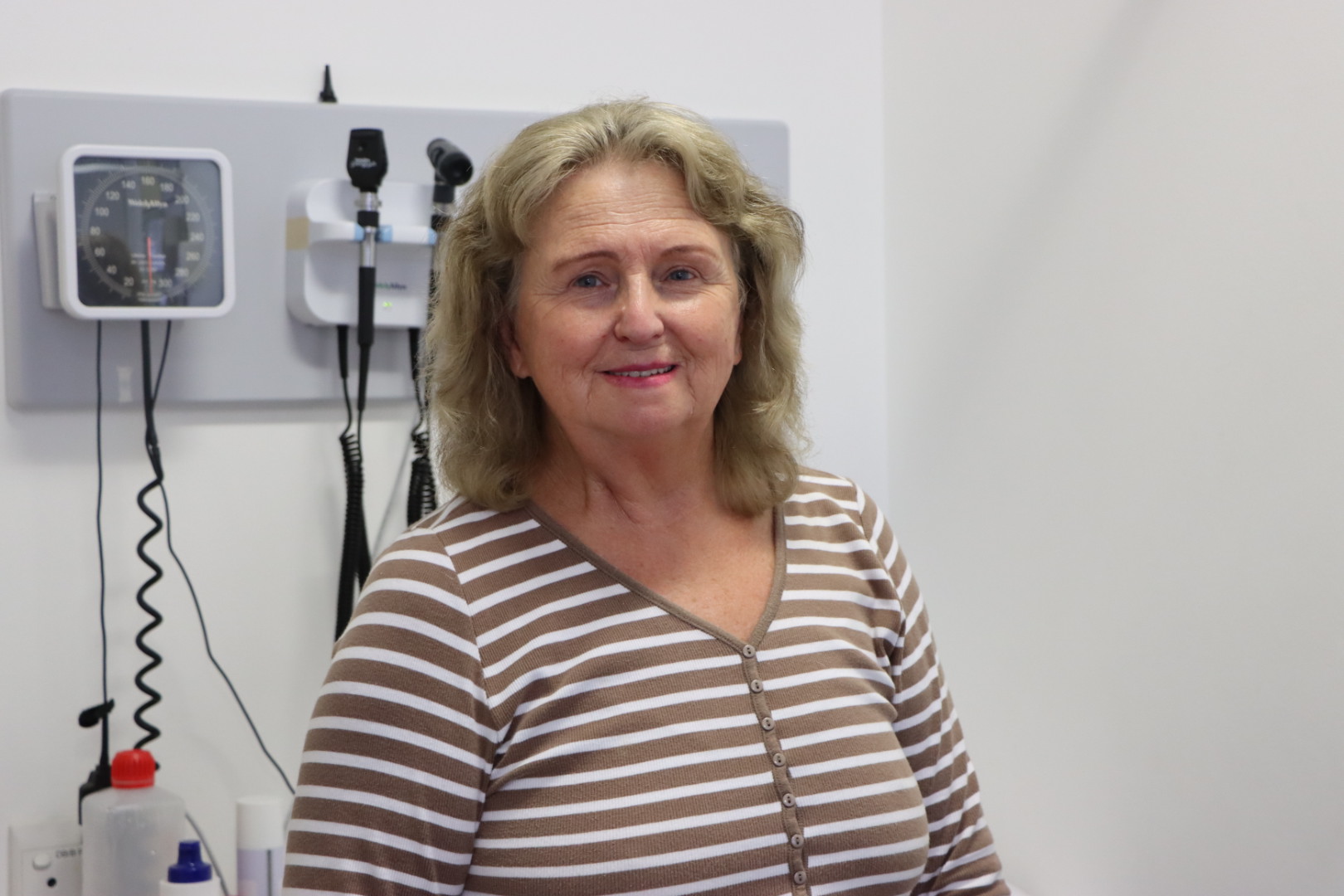
News
Gloudina Flynn says life does not need to stop after Parkinson’s diagnosis
In 2015 at the age of 60, Cosmetic Manager, Gloudina Flynn, started dropping cosmetic items and perfumes and found it difficult to keep her hands steady while offering assistance to and performing makeovers on clients. She couldn’t understand why this was happening to her. After seeking medical assistance and then being referred to a neurologist and undergoing multiple tests and assessments, she was diagnosed with Parkinson’s, a life-changing diagnosis which meant early retirement and major lifestyle adjustments.
Parkinson’s is a chronic and progressive brain disorder, which affects the nervous system, especially the nerves that make your muscles work. The nerve cell damage in the brain causes dopamine levels to drop and this causes the symptoms of Parkinson’s. This disorder is mostly found in people older than 50 and men are at higher risk of developing it. World Parkinson’s Day takes place on 11 April every year to raise awareness of Parkinson's.
According to Dr Stefanie Perold, Family Physician at Hermanus Hospital, Parkinson’s is a chronic, progressive disorder that will become totally debilitating and shorten a person’s lifespan. “Some of the symptoms associated with Parkinson’s often include a tremor of the thumb or fingers while the person is resting which becomes progressively worse, the person’s movements can become slower, their balance and posture become impaired, and muscle stiffness that lasts through the whole day (this is called rigidity). The nerves in the hands and fingers are also affected so their handwriting will change, often getting smaller. Their facial expressions are sometimes affected and this can give them a serious look or a blank stare on their face. They may also start speaking slower than usual. The disease can be hereditary as the risk is higher for family members to get it,” explains Dr Perold.
“My diagnosis was very difficult for my daughter, she felt that it was not possible for me to have this disease since we have no family history off it. After I was diagnosed, she started to notice that I was smiling less,” Gloudina recalls. “Initially I was very depressed but after I started treatment, I realised my life cannot stop because of this and I need to remain positive and active. My hands often shake, and I tend to drop things, it has also become difficult for me lift my left hand to brush my hair and sometimes at night my legs become restless, but it is okay, I can cope with it. I am still able to care for myself and clean my home and I want to continue doing it for as long as possible.”
Three years ago, Glaudina moved into Huis Lettie Theron in Hermanus, which offers an assisted living service because as the disease progresses it will become more difficult for her to perform daily tasks. She adds that her supportive family has played a big role the positive attitude which she has towards her condition. “My family is very supportive; they include me in their activities and don’t feel the need to leave me behind.”
Glaudina advises that people with Parkinson’s should continue doing exercise, it not necessary to sit still because you have been diagnosed with this disease. It important to stay positive and not dwell on the fact that you are going to become rigid and dependant. “I try to stay as active as possible by going for the walks in the morning and evening. I was recently able to complete the light house to light house walk a 15km beach walk. I believe staying active has helped with the progression of my disease.”
According to Dr Perold there is no clear scientific evidence of any specific preventative measures yet, but basic measures of living a healthy active life applies here too. If you suspect you may have some of the symptoms of Parkinson’s, please speak to your healthcare worker who will refer you for appropriate care as necessary.


